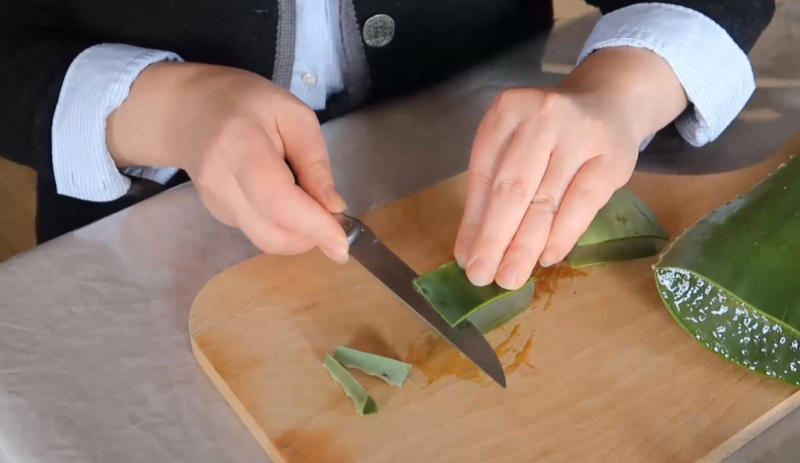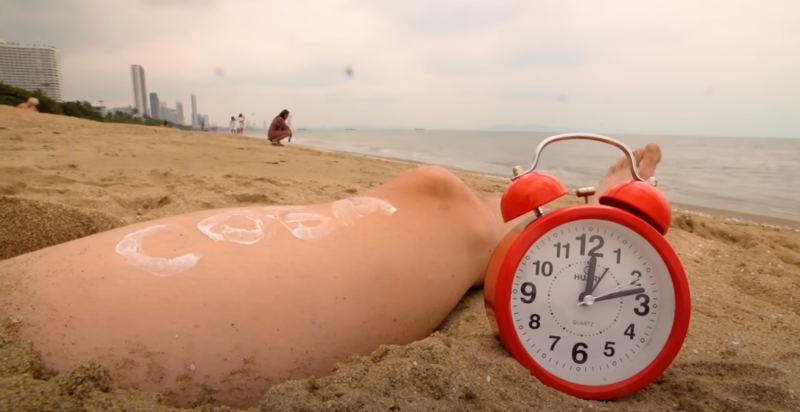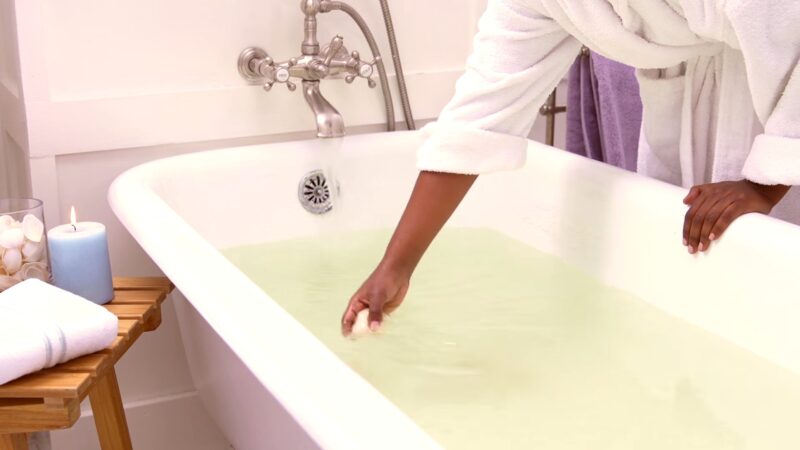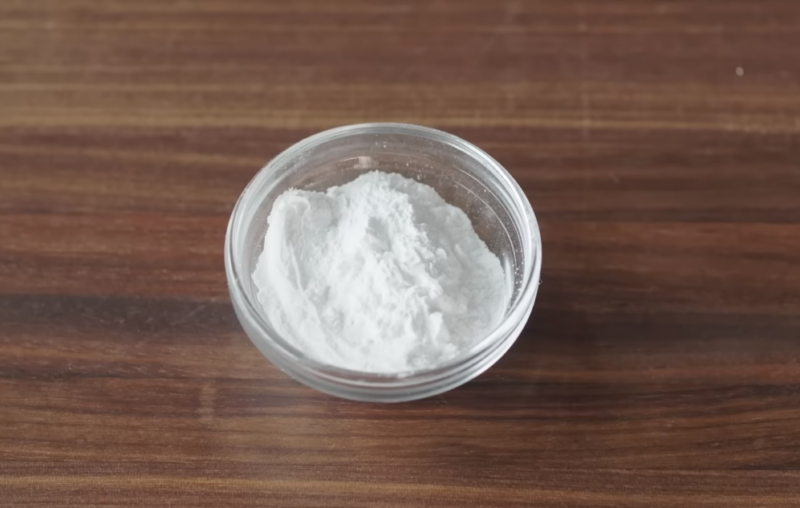As summers become increasingly hotter, it’s essential to know how to tackle this uncomfortable condition from the sanctuary of your home. Sun poisoning doesn’t mean you’ve been poisoned in the traditional sense.
It refers to a severe sunburn that affects deeper skin layers, causing symptoms like blisters, swelling, and even systemic responses like fever or chills. While sunburn is characterized by red, painful skin that might peel after a few days, sun poisoning includes symptoms like:
- Large, painful blisters
- Severe swelling and pain
- Headache or dizziness
- Nausea or stomach cramps
Signs You Might Have Sun Poisoning
Before you jump into treatment options, it’s essential to recognize the symptoms of sun poisoning.
Physical Symptoms
- Bright red skin: More intense than regular sunburn.
- Swelling and blistering: The skin can become so inflamed that it swells and forms painful blisters.
- Itching and rash: Some people may develop an itchy rash, which can be a sign of sun allergy.
Systemic Symptoms
- Fever: A low-grade fever indicates your body is trying to heal.
- Dehydration: Excessive sun exposure can dehydrate you, leading to symptoms like dry mouth, fatigue, and dizziness.
- Headache: Along with other systemic symptoms, a pounding headache can signal sun poisoning.
After you recognize the signs and determine how serious they are, you can decide whether you want to try and deal with that on your own with the help of home remedies. Keep in mind that more serious conditions will require professional help.
1. Aloe Vera Gel

Aloe vera has been a time-honored remedy for various skin ailments, especially sunburns. Its moisturizing and anti-inflammatory properties make it particularly effective for sun poisoning. Rich in vitamins and minerals, aloe vera not only soothes the skin but also promotes healing.
Application
For the best results, always use fresh aloe vera gel. If you have an aloe plant at home, simply slice open a leaf and extract the gel. Gently apply this natural gel to the sun-poisoned area for a cooling effect. Ensure that the skin is clean before application.
Pre-packaged Aloe Vera
If you don’t have an aloe plant, you can buy pre-packaged aloe vera gel. However, always check the ingredient list. Pure aloe vera or products with a high concentration of aloe are preferable. Beware of gels with added colors or fragrances as they might irritate the skin further.
The study shared on Washington Post, provided by D. Craig Hopp states:
“Aloe vera also keeps skin soft and supple, and may be used in treating rashes, irritation and sunburn. Buy an aloe vera plant and keep it in the house for a fresh supply. Pluck off a leaf, make a small cut, and squeeze out the gel. ‘I can’t point to any science on aloe vera, but I put it on every burn I have.”
2. Cold Compress

Using a cold compress can provide immediate relief from the burning sensation caused by sun poisoning. The cold helps reduce inflammation, eases pain, and prevents the skin from becoming excessively dry.
How to Use
Dampen a cloth with cold water or immerse it in a bowl filled with ice water for a few minutes. Wring out the excess water and gently place the cloth on the affected area. Avoid direct application of ice as it can damage the skin.
Frequency
You can repeat this process multiple times throughout the day. However, ensure you give your skin a break in between to prevent any cold-induced skin issues.
3. Hydration

Sun poisoning, like other forms of sunburn, can dehydrate your skin. Rehydrating from the inside out is crucial. Drinking plenty of water aids in replenishing lost fluids, ensuring that the skin heals faster.
Hydrating Foods
Apart from water, consider consuming hydrating foods. Fruits like watermelon, cucumber, and oranges are packed with water and can help restore your body’s hydration balance.
Avoid Caffeine and Alcohol
It’s essential to steer clear of dehydrating drinks like alcohol and those containing caffeine. These can exacerbate dehydration, making it harder for your skin to recover.
4. Over-the-Counter Pain Relievers
Sun poisoning can be excruciating. Over-the-counter (OTC) pain relievers like ibuprofen or acetaminophen can help reduce pain and inflammation. They can make the recovery period more bearable.
Consultation
Before taking any medication, even OTC ones, it’s always a good idea to consult with a healthcare professional, especially if you’re already on other medications or have underlying health conditions.
Application
Always follow the dosage recommendations on the label or as prescribed by a doctor. Avoid excessive use, and if pain persists, seek medical attention.
5. Oatmeal Bath

Oatmeal has natural anti-inflammatory properties that can soothe sun-poisoned skin. An oatmeal bath can reduce itching, pain, and inflammation.
How to Prepare
Grind whole oatmeal into a fine powder using a blender. Add this to a bathtub filled with lukewarm water and stir until it’s well-mixed. Soak in this bath for about 15-20 minutes, ensuring the affected areas are well submerged.
Post-Bath Care
After the oatmeal bath, gently pat your skin dry. Avoid rubbing as it can further irritate the skin. Apply a gentle moisturizer to keep the skin hydrated.
6. Baking Soda & Cornstarch

Both baking soda and cornstarch possess soothing properties that can provide relief to irritated and inflamed skin caused by sun poisoning. They can reduce itching, redness, and discomfort.
Creating a Soothing Paste
To create a paste, mix equal parts of baking soda and cornstarch with a bit of water. Once you achieve a smooth consistency, gently apply this mixture to the affected areas. Let it sit for about 10-15 minutes and then rinse off with cool water.
Bath Alternative
Another way to utilize these ingredients is by adding them to a cool bath. Sprinkle half a cup of baking soda and half a cup of cornstarch into a lukewarm bath and soak your body for 20 minutes. Ensure to rinse off any residue afterward and gently pat your skin dry.
7. Chamomile Tea
Chamomile is renowned for its calming and anti-inflammatory properties. While many drink chamomile tea to soothe their nerves, it can also be used externally to treat sun-poisoned skin.
Preparation and Use
Brew a strong pot of chamomile tea and allow it to cool. You can then soak a cloth in the tea and use it as a compress on the affected areas. Alternatively, you can also pour the cooled tea into a spray bottle and spritz it on your skin for relief.
Additional Tip
Drinking chamomile tea can also help in the recovery process. It can rehydrate you and offer internal anti-inflammatory benefits. Consider adding honey for a touch of natural sweetness and additional soothing properties.
8. Witch Hazel

Witch hazel is a natural astringent, known for its ability to reduce inflammation and soothe the skin. It can be particularly beneficial for blisters and swollen areas caused by sun poisoning.
Application
Dab a cotton ball or cloth in witch hazel and gently apply it to the sun-poisoned areas. Its cooling effect can provide immediate relief, and its anti-inflammatory properties can speed up the healing process.
Purchase Tips
When buying witch hazel, look for versions without alcohol as they can be less drying to the skin. It’s always a good idea to do a patch test first to ensure you don’t have an allergic reaction.
When to Visit a Doctor and Why It’s Crucial?

Recognizing the Limits of Home Remedies
While the above remedies can offer significant relief from the symptoms of sun poisoning, it’s essential to understand that they primarily address the discomfort and not the underlying damage.
Some symptoms and conditions demand professional medical attention. No home remedy can replace the expertise and care that a healthcare professional provides.
Key Indicators
You should consider seeking medical attention if:
- The sunburn covers a large portion of your body.
- You experience severe blisters.
- Symptoms like fever, chills, dehydration, confusion, or faintness persist.
- The pain becomes unbearable or unmanageable.
- The sunburn doesn’t show signs of improvement within a few days.
The Importance of Professional Care
Severe sun poisoning can lead to complications like infection, especially if blisters break. Dehydration and heat-related illnesses can also follow prolonged sun exposure. In such cases, the body might need more than just topical treatments.
A doctor can provide comprehensive care, from prescribing medications to giving guidelines on hydration and recovery. Furthermore, repeated sunburns or sun poisoning can increase the risk of skin conditions in the future, including melanoma, a dangerous form of skin cancer.
A healthcare professional can guide you on preventive measures and the importance of regular skin checks.
FAQs
Can sun poisoning occur even if I’m wearing sunscreen?
Yes, sun poisoning can still occur even with sunscreen application. No sunscreen offers 100% protection. The effectiveness of sunscreen can be reduced if not applied generously and re-applied frequently, especially after swimming or sweating. Additionally, the strength of the sun’s UV rays, altitude, and duration of exposure can all contribute to the risk.
Does a cloudy day reduce the risk of sun poisoning?
Cloudy days can be misleading. While clouds may block some of the sun’s rays, up to 80% of UV rays can still penetrate through clouds and harm your skin. It’s essential to protect your skin even on overcast days.
Can certain medications increase my risk of sun poisoning?
Yes, certain medications can make your skin more sensitive to sunlight, increasing the risk of sunburn or sun poisoning. Common culprits include specific antibiotics, diuretics, and antihistamines, among others. It’s always advisable to check medication labels or consult with a healthcare provider regarding sun exposure risks.
Are some skin types more prone to sun poisoning than others?
Indeed, individuals with fair skin, light hair, and light eyes tend to be more susceptible to sunburn and sun poisoning. However, that doesn’t mean darker skin types are immune. They can still experience sun damage, even if the immediate visible effects aren’t as pronounced.
How long does it typically take for symptoms of sun poisoning to appear?
Symptoms of sun poisoning can manifest within minutes to hours after excessive sun exposure. Typically, the most severe symptoms, like blisters and swelling, tend to appear within 6-48 hours post-exposure.
Can children and babies get sun poisoning?
Absolutely. In fact, children’s skin is more delicate and susceptible to the harmful effects of the sun. It’s crucial to protect them with appropriate clothing, hats, and sunscreen. For babies under six months, direct sun exposure should be avoided as much as possible, and it’s always best to consult a pediatrician for sun protection recommendations.
Summary
As you can see, there are various solutions available if you are dealing with a sunburn, which can be quite frustrating, especially when you are on a vacation. While you can avoid getting medical care with these options, it depends on your condition.
Therefore, if the sunburn is more severe, visiting the doctor as soon as you can is the best approach. We are covering various topics related to home remedies, medication, and supplements that you can find at Peak Testosterone.
